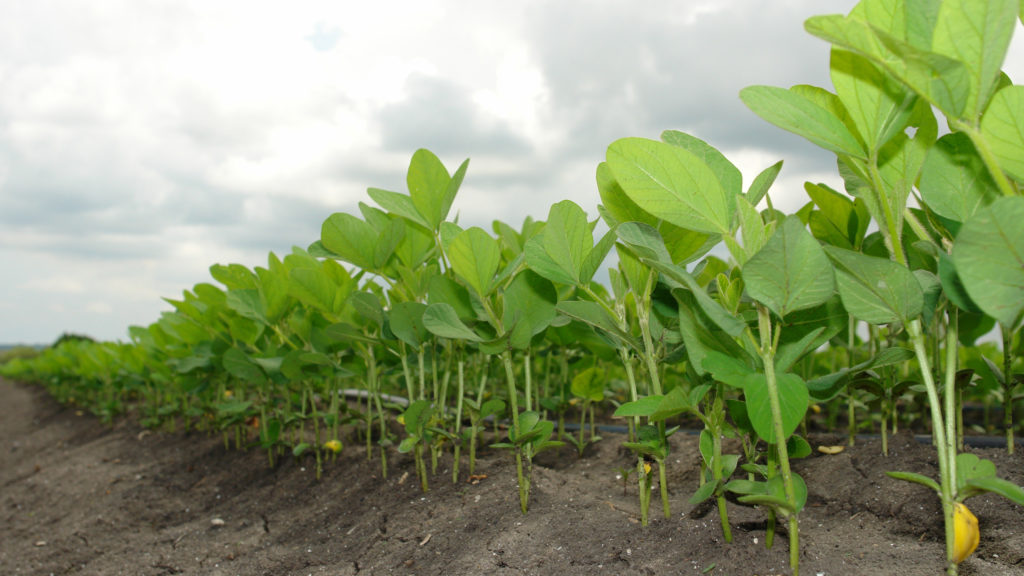‘Digging deep’ to strengthen the potato value chain in Pakistan
CABI in Pakistan, under its ACIAR-funded ‘Strengthening Vegetable Value Chain in Pakistan’ (SVVCP) project, is committed to improving the value chain of vegetables for smallholder farmers so they can improve their livelihoods. Dr Babar E. Bajwa, Project Leader, reports on the progress being made so far… Potato is a major crop in Pakistan with great…
Soybean farmers in Nigeria embrace new production technologies
By Solomon Duah, Communications Specialist, CABI Ghana There is a growing interest and enthusiasm in the production of soybean among farmers in selected states in Nigeria as new yield-enhancing and soil fertility-improving technologies are being introduced to them through an integrated farmer education campaign.
Illegal wildlife trade, it’s not all rhinos and elephants
This month London hosted an international conference on Illegal Wildlife Trade, highlighting fresh commitments and funding to reduce international trade in threatened animal and plant species. October also saw the annual CITES meeting where compliance issues with trade regulations laid out by CITES are discussed and resolved.
Embracing ‘stakeholder interaction’ for better business strategy and integration in Pakistan
Dr Umair Safdar, Development Communications Executive at CABI in Rawalpindi, Pakistan, looks at ‘stakeholder interaction’ for better business strategy and integration in Pakistan through the cluster-based Agricultural Transformation (CDBAT) Project… Stakeholders strongly influence a project’s success, particularly for complex projects with heterogeneous stakeholders. Therefore, understanding their influence is essential for project management and implementation.
10 highlights from 10 years of the China-CABI Joint Laboratory
2018 marks the 10th anniversary of the Joint Laboratory for Bio-safety established by the Chinese Ministry of Agriculture and Rural Affairs (MARA) and CABI. A decade of cooperation and knowledge sharing through the Joint Lab has helped to address Chinese and global needs for food and nutritional security, food safety, greater innovation and sustainable development.
Did I really eat that?
There’s been a thing on social media for a while of photographing what you’re about to eat – whether it’s to brag about what fancy restaurants you go to or to show off your cooking skills, with hashtags such as #Eatingfortheinsta, #foodie and #foodporn. But food photography could play a useful role in helping dietitians…
World Food Day 2018 – Feeding our appetite for food security
By Dr Dennis Rangi – Director General, Development at CABI based in Nairobi, Kenya On this World Food Day 2018 the issue of feeding the world has never been in sharper focus. By 2050, agriculture will need to produce almost 50 percent more food, feed and biofuel than it did in 2012 just to meet…
PRMP in Pakistan: perspectives of government officials of Balochistan
By Dr Umair Safdar, Development Communication Executive, CABI Pakistan A Phytosanitary Risk Management Program (PRMP) in Pakistan is implementing a biological control program for pests of concerns in the Sindh, Gilgit and Skardu regions – with the aim of helping farmers grow more and lose less to invasive species. In Balochistan, PRMP has established a Biological…
New report calls for urgent action to tackle climate change
The world’s leading climate scientists have issued their most extensive warning yet on the risks associated with increasing global temperatures. The authors of the new report, published yesterday in Incheon, South Korea, by the Intergovernmental Panel on Climate Change (IPCC), say that urgent, far-reaching and unprecedented actions are needed across society, in order to limit…
Sowing the ‘seeds’ for the agricultural scientists of tomorrow
By Professor Jozsef Kiss, Szent István University CABI has a long history of nurturing talented scientists who will one day join the bank of researchers with the shared interest of trying to help farmers lose less of what they grow to agricultural pests and diseases. One only has to think of my colleague Dr Stefan…




